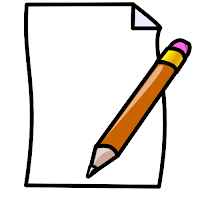What do we need to know about asking questions to be an effective teacher?
The Right Way to Ask Questions in the Classroom
In Ben Johnson's The Right Way to Ask Questions in the Classroom, he talks about the Goal of a Question, his Classroom Observations, and a Simple Effective Approach. Johnson focuses that the most important question to ask is, "What does a teacher asking questions of a class expect a class to learn from the questioning process?" Often times as teachers, we ask the question, "Does everyone understand?" The problem with this question is when no one answers, the students may not understand that they don't understand, and therefore won't know what to ask or how to answer. Johnson explains that this often times is a teachers way of saying, "This is your last chance. If you don't have questions then you must understand." He then goes on to ask, how do we appropriately check for understanding? The answer is ask specific questions.
In the section of Johnson's same blog, Classroom Observations, he points out students already have the labels, "smart", "not smart" or "don't care", by the fourth grade. These labels play a large role because the majority who are labeled "not smart" and "don't care" rely on the so called "smart" labeled students in the class. Teachers believe because a handful of students are answering the given questions, that all students in the classroom are learning from each other. Wrong. The 2/3's of the class not answering are day dreaming or thinking of other things than really diagnosing the answer. When Johnson shadowed a group of students for an extended period of time, he saw majority didn't ask a single question. Some students he followed didn't ask a question for a whole day and some didn't ask questions at all for a full month. Is there a strategy to help this? Johnson says yes.
In Johnson's final section, A Simple Effective Approach, he tells of a proposal by Mary Budd Rowe. Her proposal states: the teacher asks a question, pauses for three seconds and then picks a student individually to answer the question. This strategy allows them to automatically think of an answer when they are called on. Johnson says along with this strategy, ask and pick randomly so the students don't assume after they answer one question, that they are done for the day. I believe this strategy is one to keep in mind in order to be an effective teacher.
It is also proposed "open-ended" and "close-ended questions". A close-ended question can be answered simply by "yes" or "no". An open-ended question often promote deeper think and require a more in-depth answer. In Andi Stix's video, Open-Ended Questions, she gives several opening question starters.
Three Ways to Ask Better Questions in the Classroom
According to Maryellen Weimer in her blog, Three Ways to Ask Better Questions in the Classroom, she explains good questions make students think, encourage participation, and they improve answers students give and the questions that follow. Her 3 actions to improve the potential to improve our questioning as teachers is:
 1. Prepare Questions
1. Prepare QuestionsWeimer says in her personal experience, she planned ahead for everything (lesson plans, activities, etc.) but never planned ahead her questions. This lead to random or spontaneous questions. She advises us to prepare questions to prevent any further confusion of the students than they were when you started asking random questions and then rephrasing them.
2. Play with Questions
Once questions are answered, often times students forget immediately afterwards the answer to the question. Weimer defines it: ask a question, let the students think on it and come back to it after a certain amount of time. This often encourages them to think beyond the surface.

3. Preserve Good Questions
Good questions can be kept. Sometimes it's best to jot down notes of what answers students offer and occasionally a student will ask a really good question and there will be reasons to save those later on as well.
Overall, Weimer tells us as educators, to work on questioning techniques, not just because they're more effective when skillfully answered, but so that students can see the importance of questions. Eventually students will ask better questions themselves, which Weimer claims is the best feeling of all.


Hey Alex! You did a very good job on your post. We posted almost the exact same ideas. I agree that many students do not ask or answer questions, which allows the teacher to move on and the student doesn't have a good understanding. I am hoping from reading these articles I will learn how to properly ask questions, so that I can help all of my students understand.
ReplyDeleteWhat about open-ended and closed ended questions?
ReplyDeleteThoughtful. Interesting.
Thank you Dr. Strange. I furthered my blog with a few sentences on open and close ended questions.
Delete